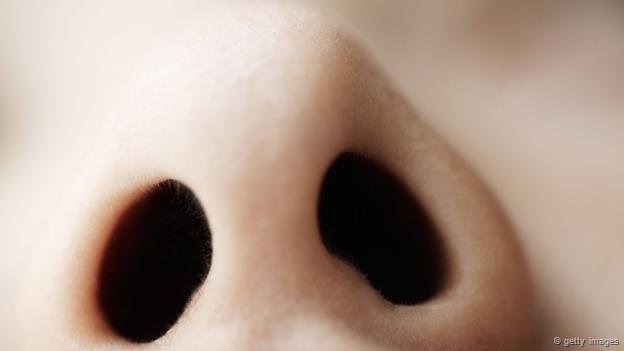Fantosmia, when your nose plays a trick on you
Fantosmia, when your nose plays a trick on you
Today we talk about olfactory hallucinations or perception of ghost odors. They discover that they are much more frequent than we thought.

Do you smell things that are not there? If so, you are not alone. A study published in JAMA Otolaryngology-Head and Neck Surgery found that the so-called ghost smell perception is much more common than one might think.
Basically it describes the experience of smelling something (like it might be the smell of burning) that is not there. This experience is well documented, but very few specific investigations have been carried out.
Scientists from the Epidemiology and Biostatistics Program at the National Institute of Deafness and Other Communication Disorders recently conducted a study on ptostosis and asked why some people suffer from it and others do not.
"Smell problems are often overlooked, despite their importance, they can have a big impact on appetite, food preferences and the ability to smell danger signs such as fire, gas leaks and spoiled food" , clarifies Judith A. Cooper, director of the program.
Statistics
The researchers took data from the National Survey of Health and Nutrition Examination. They used data from more than 7,000 people over 40, taken in 2011-2014.
Inside the questionnaire was the question: "Do you sometimes smell an unpleasant smell when there is nothing?" They found that, in general, 6.5% of people over 40 experienced olfactory hallucinations, which is equivalent to about 1 in 15 people.
The sense of smell tends to decrease with age, but with this disorder the opposite seems to be the case. About 5% of those over 60 experienced the phenomenon, but the figure was much higher in the range of 40-60 years.
The study also revealed that phanthosmy affected women almost twice as often as men, and this difference in sex was more pronounced in the 40-60 age group.
When scientists looked for possible risk factors, they found that the risk increased for people with poor general health or a lower socioeconomic status.
According to the researchers, this last risk factor could be due to the fact that people with a lower socioeconomic level could be exposed to higher levels of environmental pollutants and toxins.
Risk factor's
Those with the sensation of dry mouth had three times more risk than those who did not usually present this sign. Head injuries also increase the risk; 1 in 10 people who experienced a loss of consciousness due to a head injury reported having olfactory hallucinations. However, injuries to the face, nose or skull without loss of consciousness did not affect the risk.
In addition, people who smoked cigarettes regularly were more likely to suffer from these hallucinations. Not so the general consumption of alcohol, because those who drank alcohol more than 3 days a week had a lower risk.
"The causes of the perception of phantom odor are not understood, the condition could be related to hyperactive cells with detection of odors in the nasal cavity or perhaps a malfunction in the part of the brain that understands the signs of smell," says Kathleen Bainbridge, leader of the study.
"A good first step to understanding any medical condition is a clear description of the phenomenon, and other researchers can form ideas on where to look for new causes and, ultimately, on how to prevent or treat the disease," he concludes.


